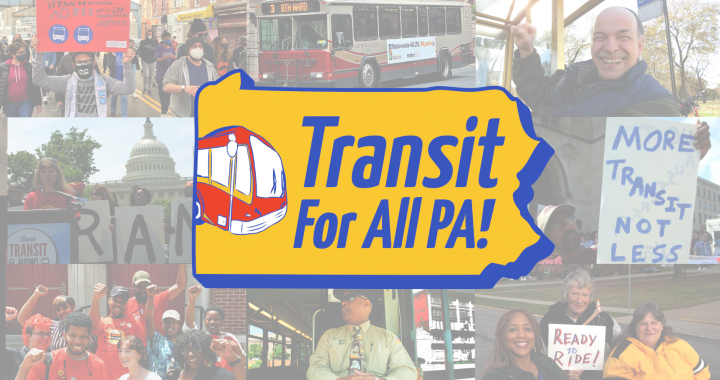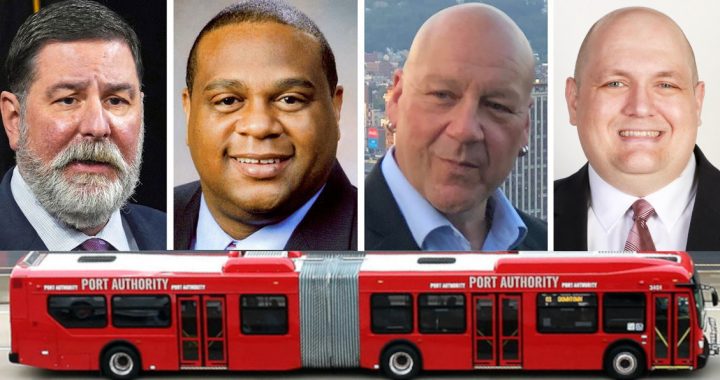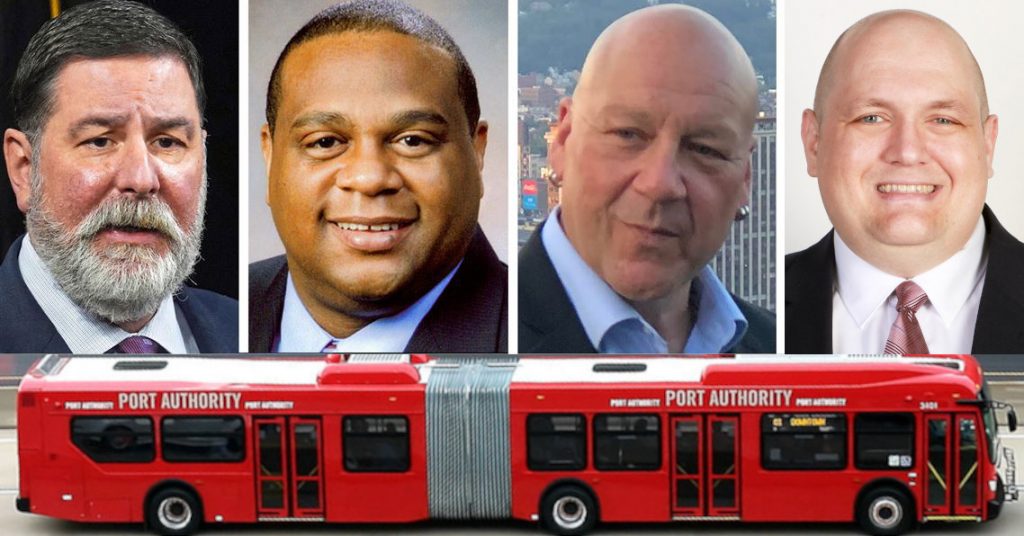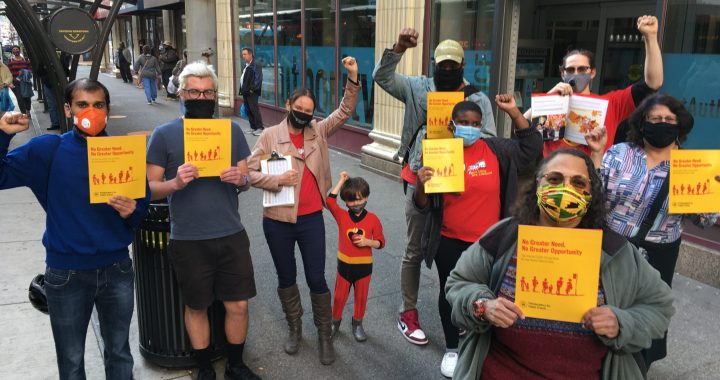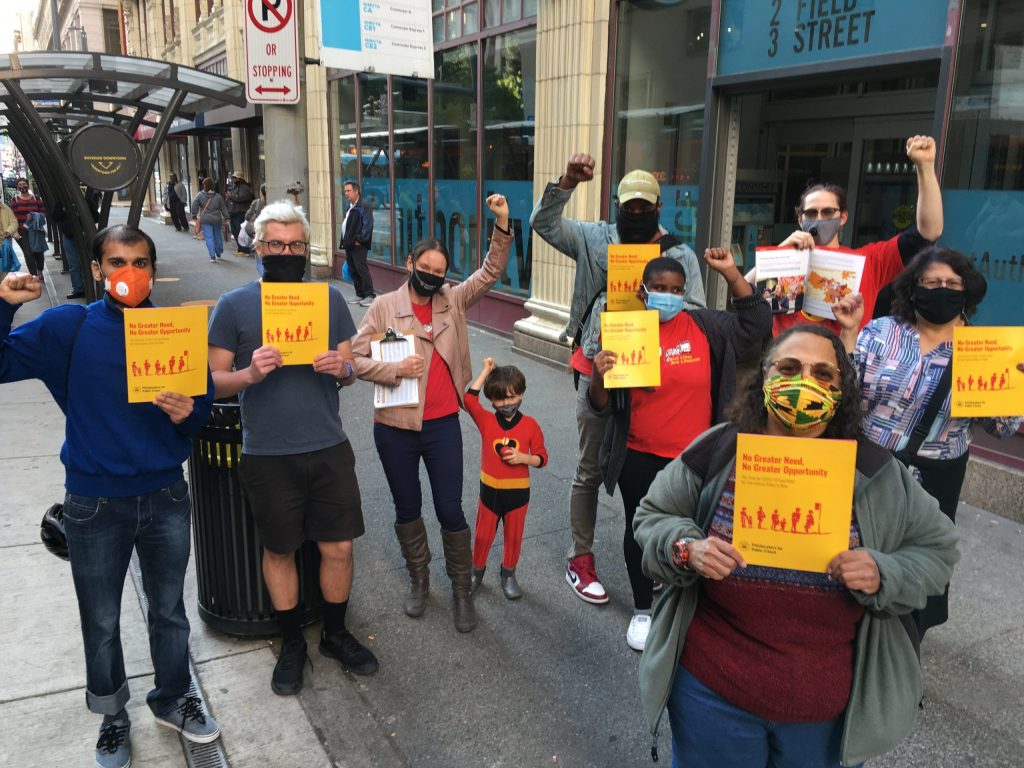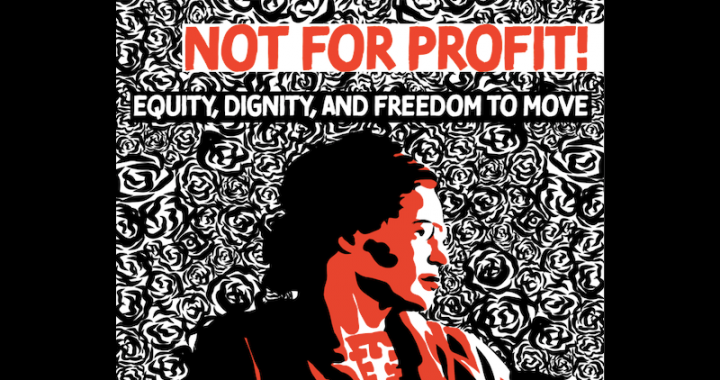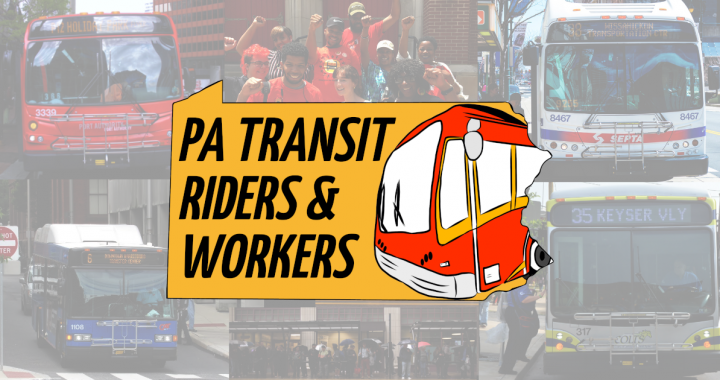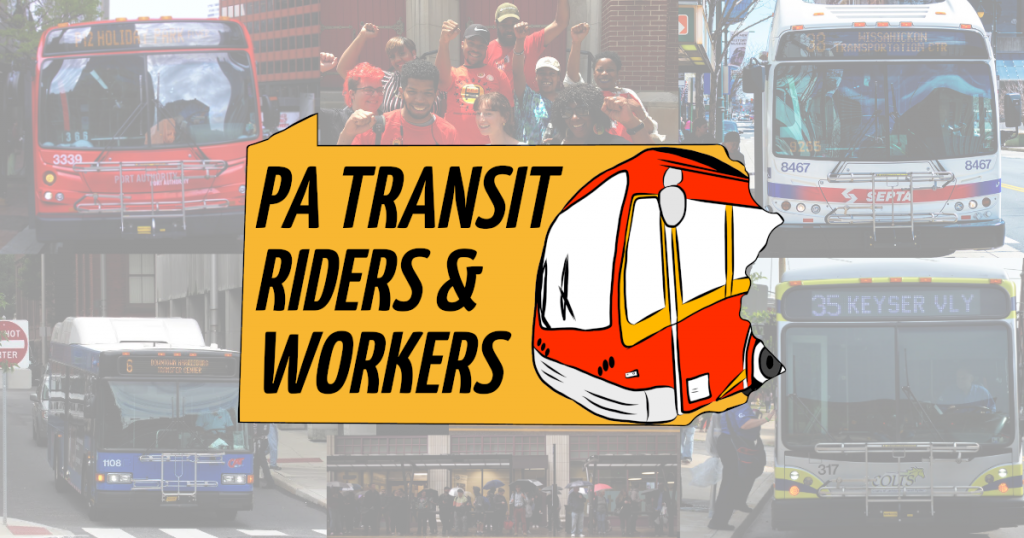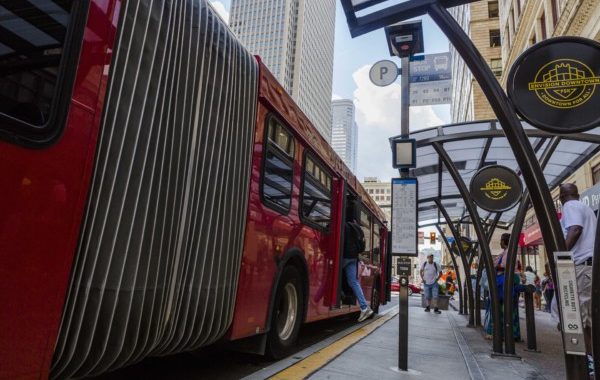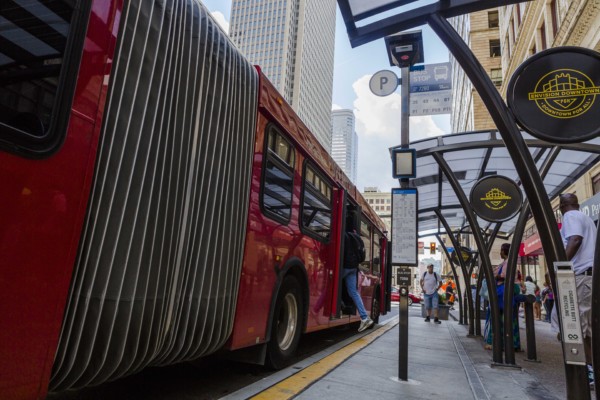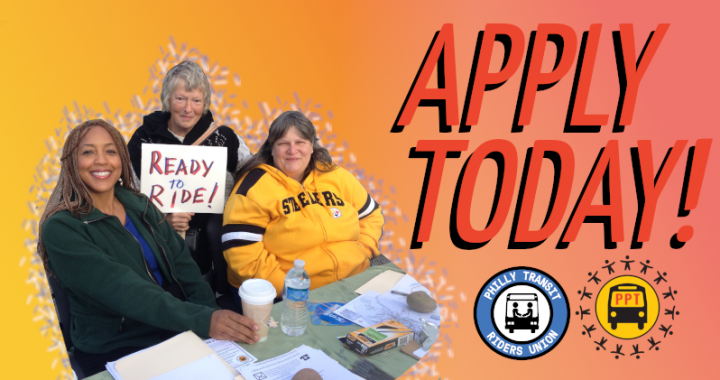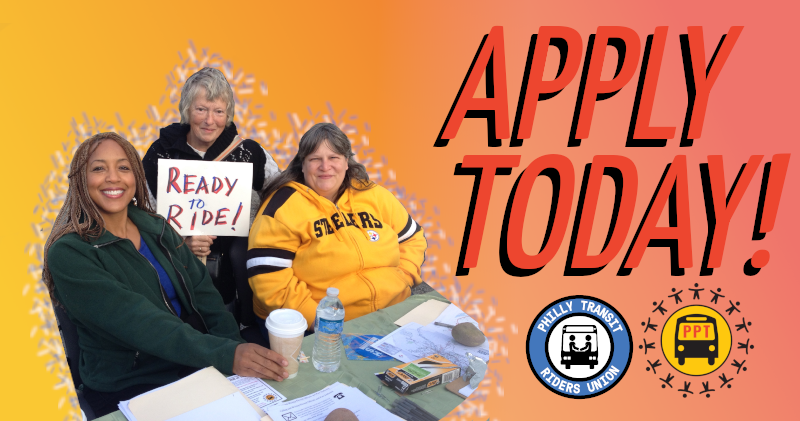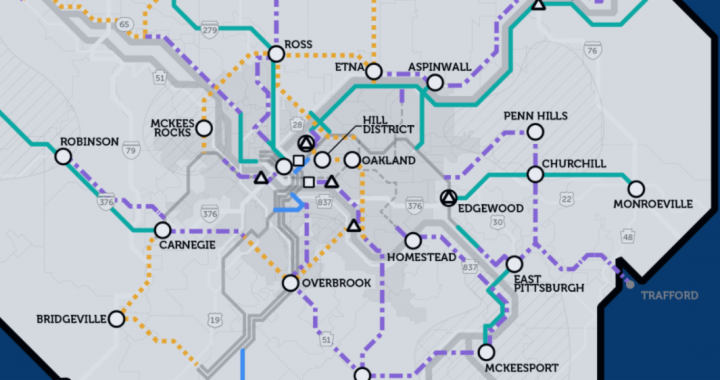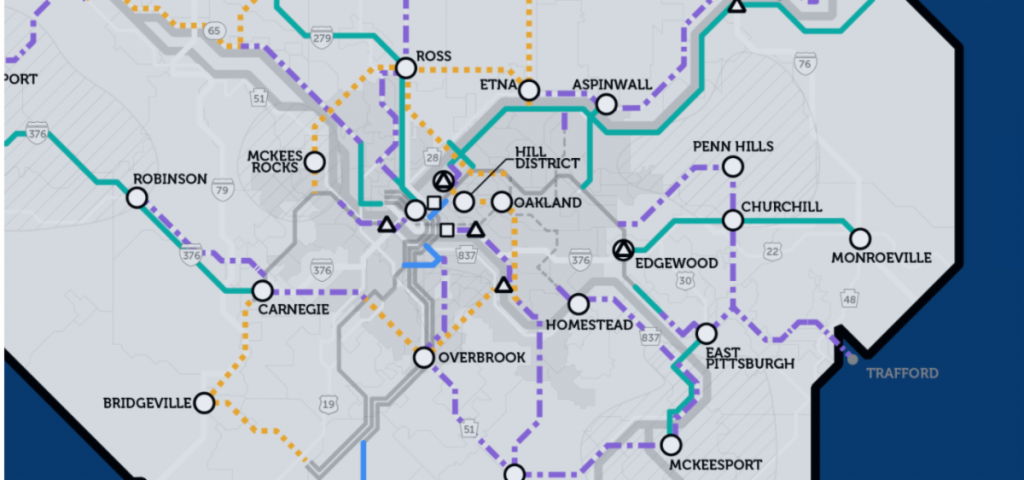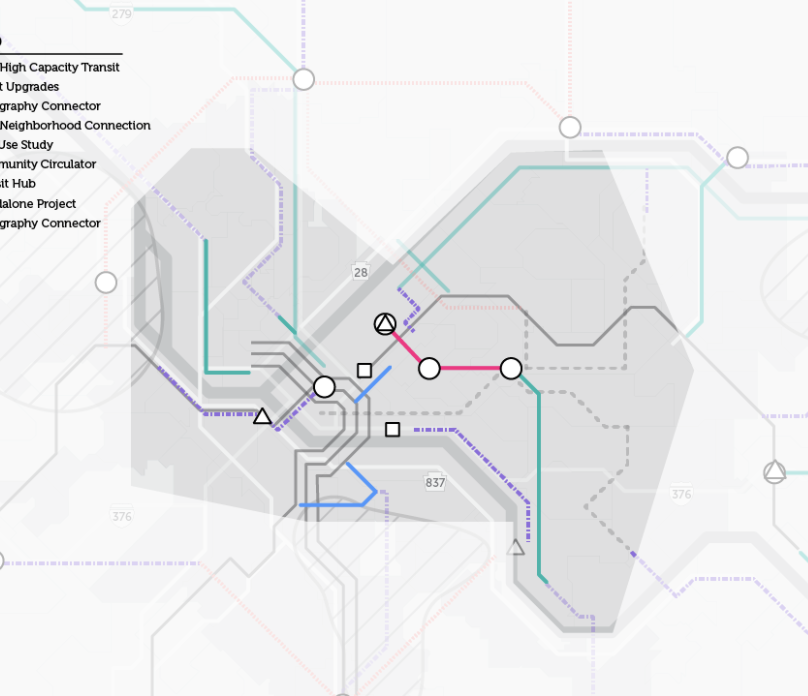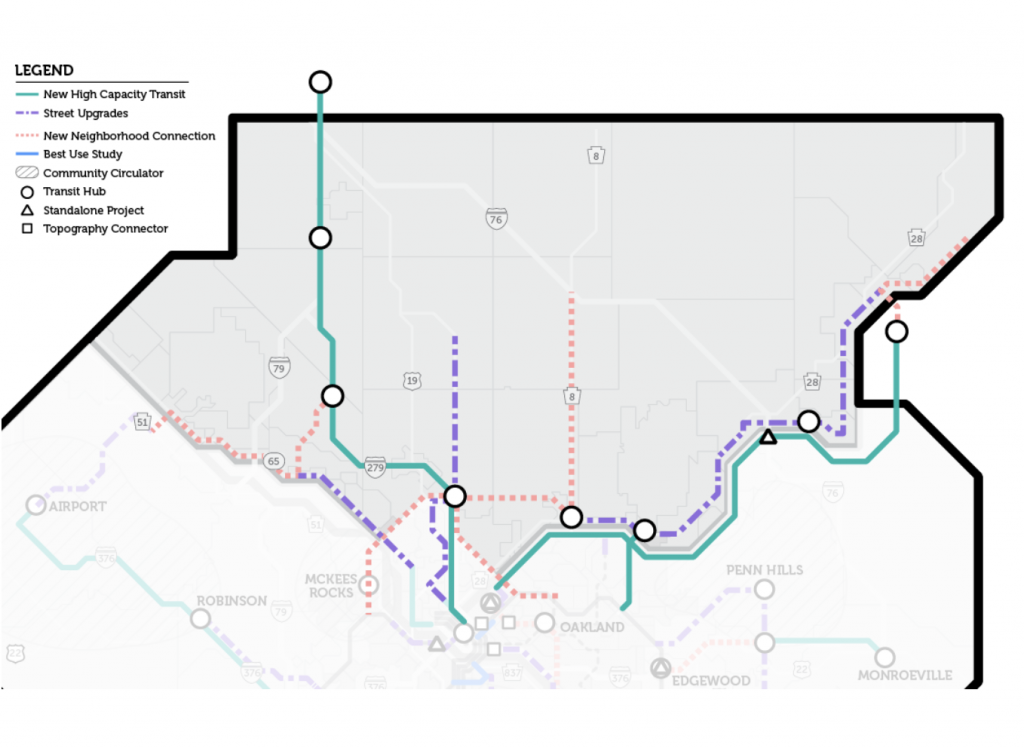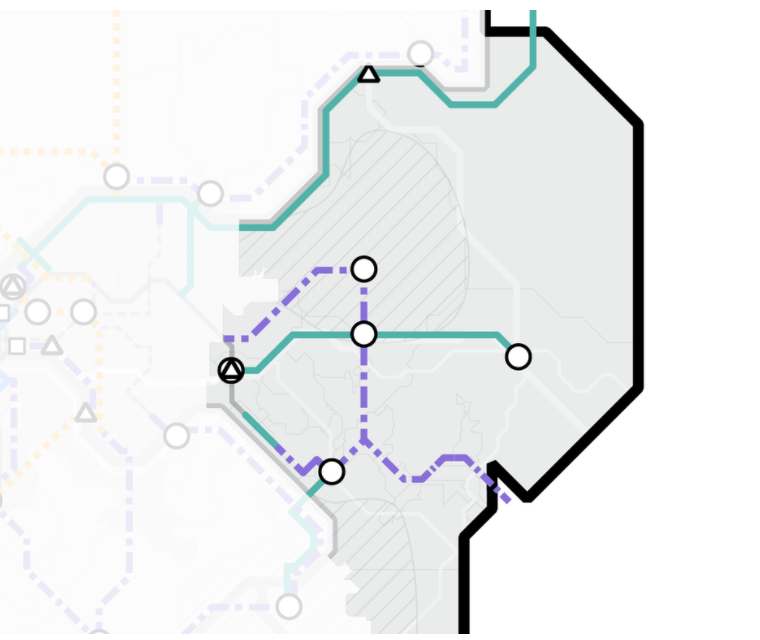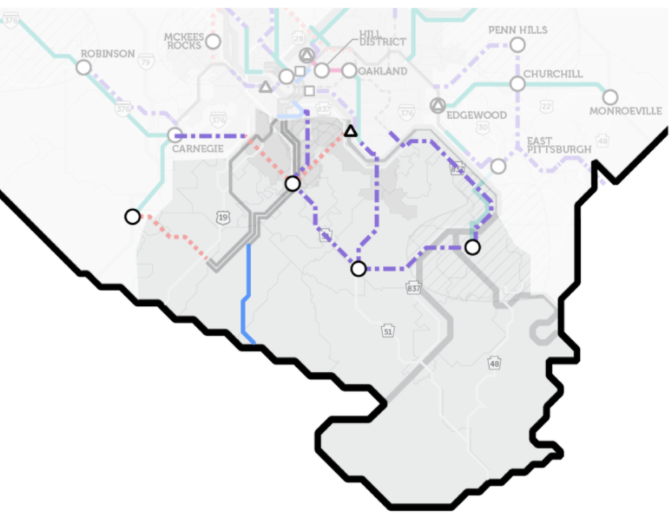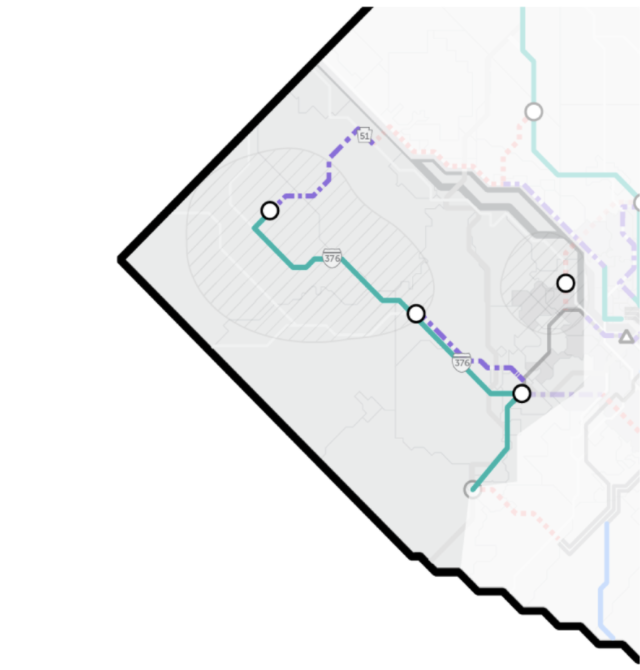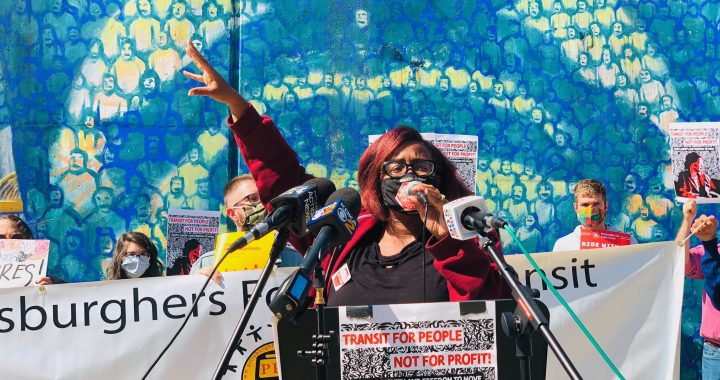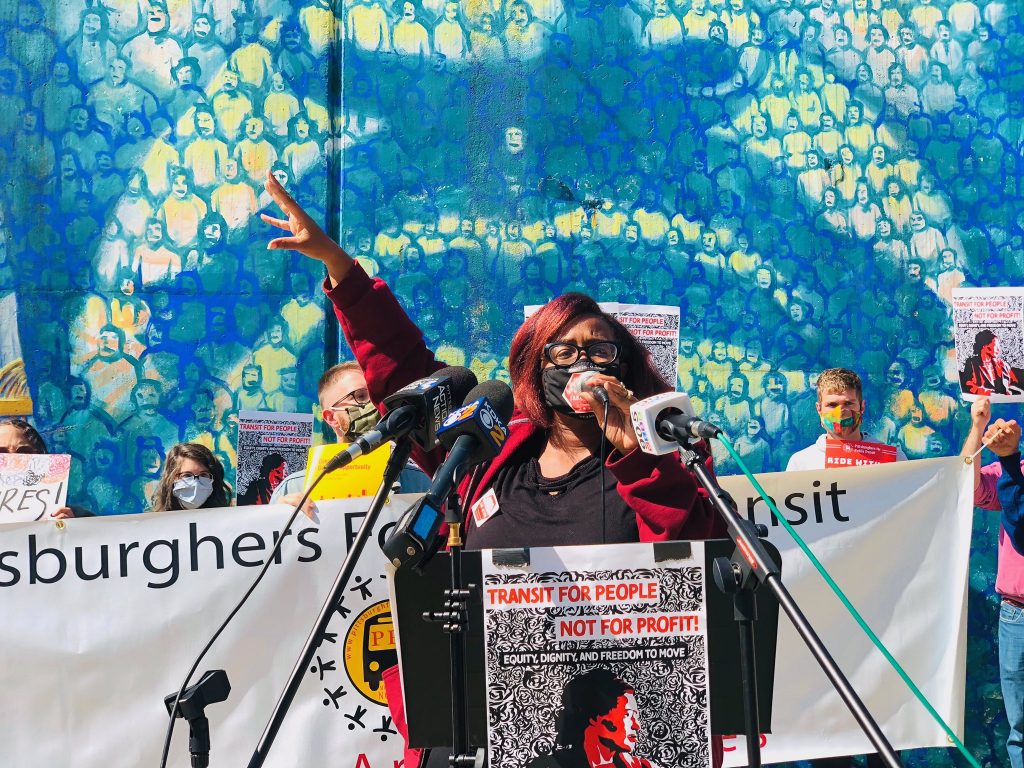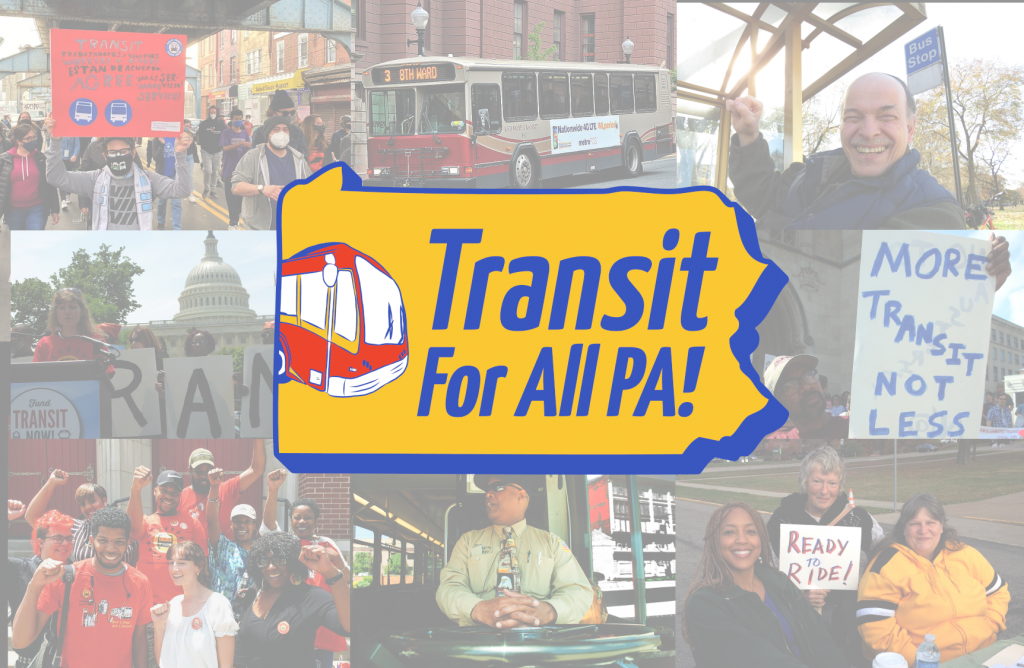
Transit riders and workers across PA are coming together to expand public transit in our state – Sign on to support the campaign!
Public transit operates in every single Pennsylvania county, moving millions of riders each day and employing tens of thousands of unionized workers. These PA transit riders and workers are the backbones of our economy and pillars of our community. They need to be driving the conversation about expanding public transit in Pennsylvania, so that we can ensure economic opportunity, environmental justice and full access for all Pennsylvanians.
We are Pennsylvania transit riders, transit workers and transit supporters calling for dedicated, expanded, and progressive statewide transit funding replacement for Act 89. Through the Spring of 2021 we worked with over 250 transit riders and workers from across the state to develop this platform to guide our campaign for expanded transit funding in PA. The effort was led by the Amalgamated Transit Union PA Join Conference Board, Pittsburghers for Public Transit, Philly Transit Riders Union, Transit Forward Philadelphia and 5th Square, but we need you and your organizations to support us in this campaign.
Read through this platform’s Statement of Principles, Legislative Goals, and “Menu” of State Transit Funding Mechanisms, and sign on here to support us in this work. We will follow up to discuss the campaign and our next steps.
The Platform
Section I: Statement of Principles
We believe that transit should be funded:
- To serve Pennsylvania’s diverse needs. Pennsylvania has large transit systems in Philadelphia and Pittsburgh, medium-sized systems in cities like State College, Allentown, Erie, Lancaster Scranton, and Harrisburg, and shared-ride service for seniors and people with disabilities in every county of the state. Transit is an urban and a rural issue; it is for people of all ages and abilities. Transit funding matters to the entire state.
- Through progressive mechanisms. We need to end tax loopholes and favoritism so that corporations and those with higher incomes pay their fair share.
- With sustainable, long-term funding sources. Transit agencies need dependable, long-term funding to make responsible decisions about preserving or expanding service so that public transit workers and riders are not faced with service cuts, fare increases, and or layoffs to address funding shortfalls. Funding should also be flexible so that local transit agencies can prioritize capital or operations funding needs.
- Equitably with roads and bridges. We believe in a fix-it-first approach to our highway systems, and that highway expansion runs counter to our responsibilities around climate resiliency, congestion mitigation, mode-shift needs, and our other fiscal responsibilities.
- With transit riders and transit workers at the table. People who use and run the system should be at the table for deciding the funding mechanisms and in evaluating how those funds should be invested in our regions. Those with the most at stake (and who know how the system works) should be given an important voice in decision-making.
- Without inflicting harm or funding reductions to other essential state services and programs. Transit plays an essential role in access to employment, healthcare, housing, and education, but none of their funding sources should be cannibalized to pay for the other. All these critical state services must be fully funded – as well as transit.
We additionally affirm the national Transit Justice Principles, which calls for transit to be:
- Equitable
- Sustainable
- Economically productive
- Safe and accessible
- Affordable
Section II: Legislative Goals
- To generate $1.65 billion dollars/year for a dedicated state fund for PA public transit, and to ensure that this funding grows annually to address annual cost and ridership increases. This funding should be used to explicitly support transit service expansion and a fix-it first approach to capital projects.
- To pass legislation enabling local governments to implement new transit funding mechanisms, while ensuring that local funds are supplemental and not used to replace a shortfall from the state
- To ensure that state transit funding is flexible around capital and operations
- To ensure that public infrastructure, including public transit, roads and bridges, remain publicly-owned and operated. To ensure that construction and transit operations in PA are done by union workers.
- To move towards clean, electrified public transportation fleets that retain and create union mechanic and engineering jobs in garages across PA.
- To ensure that there is robust funding at the state level for bike and pedestrian infrastructure, with an emphasis on accessible and safe bike and pedestrian connections to transit
- To generate funding for a dedicated low-income fare program statewide, similar to the existing senior fare free transit programs, administered by the state.
- To develop state guidelines around “transit-oriented communities,” and to create a fund to support the development of affordable housing by good transit
- To decriminalize fare evasion at the state level, and to enable local jurisdictions to set local civil processes to address fare evasion
- To ensure that transit riders have a governing role on transit agency boards, through the creation of elected seats and transparency around board members’ transit usage.
Section III: Preferred State Transit Funding Mechanisms
We support general reforms to the tax code to make revenue streams into the PA General Fund more equitable, including implementing the Fair Share tax and closing the Delaware loophole. However, because we recognize that these mechanisms will ensure that the General Fund is able to address the Commonwealth’s education and public health needs, among other critical priorities, our focus is on the below-listed tax revenue sources for dedicated statewide funding towards public transit. We are also strongly in favor of removing the PA State Police from the Motor License Fund, which will save upwards of $800 million dollars annually to be invested in transportation.
We additionally support local revenue sources for expanding transit funding that include congestion pricing, taxing private parking lots, taxing large non-profits, and land value taxes.
After consultation with riders, workers, and advocates we would like to guide PA legislators to the following range of state funding mechanisms that we support, to provide dedicated statewide revenue stream for public transit:
Corporate and Individual Wealth Taxes:
Corporate Income Tax Increase: An increase on the tax on the profits of a PA corporation.
Implementation of a Corporate Head Tax: Implementation of a flat fee charged per employee for businesses over a certain size
Wealth Tax: Implementation of a tax on the net wealth a Pennsylvania resident holds, for those with total wealth over several million dollars.
Road User Fees:
TNC Fee: A per ride tax on any Transportation Network Company (TNC) company trip like Uber or Lyft
Interstate Tolling: A statewide toll of interstates and expressways
Mileage-Based User Fees: This new road user charge will charge 3.16 cents to 7 cents per mile
Excise Tax on Vehicle Delivery: This is a percentage of value on goods delivered from third-party delivery companies, like Amazon.
Transportation Climate Initiative (TCI): This is a cap on carbon emissions from various transportation fuels. A minimum of 35% of this revenue will be allocated to environmental justice communities that are unjustly affected by pollution and the remaining portion will go to alternative transportation solutions.
Progressive Vehicle Ownership Taxes:
Increase to Truck and Tractor Trailer Registration Fees: These fees will be tacked on heavy-duty trucks and tractor trailers registered in the state of Pennsylvania.
Increase to the Heavy Vehicle Use Tax: These fees will be tacked on heavier vehicles of 55,000 pounds or more.
Vehicle Property Tax: This is a percentage fee on the assessed value of a vehicle (or .35% of the annual value).
New Car Vehicle Sales Tax: This will increase in the current vehicle sales tax to address the Act 44/89 sunset in 2022.
Luxury Vehicle Tax: This is a tax on all of the luxury vehicles sold and registered in the state of Pennsylvania. Vehicle Rental Tax: This is an increase on a tax on all vehicle rentals made in the state of Pennsylvania.
